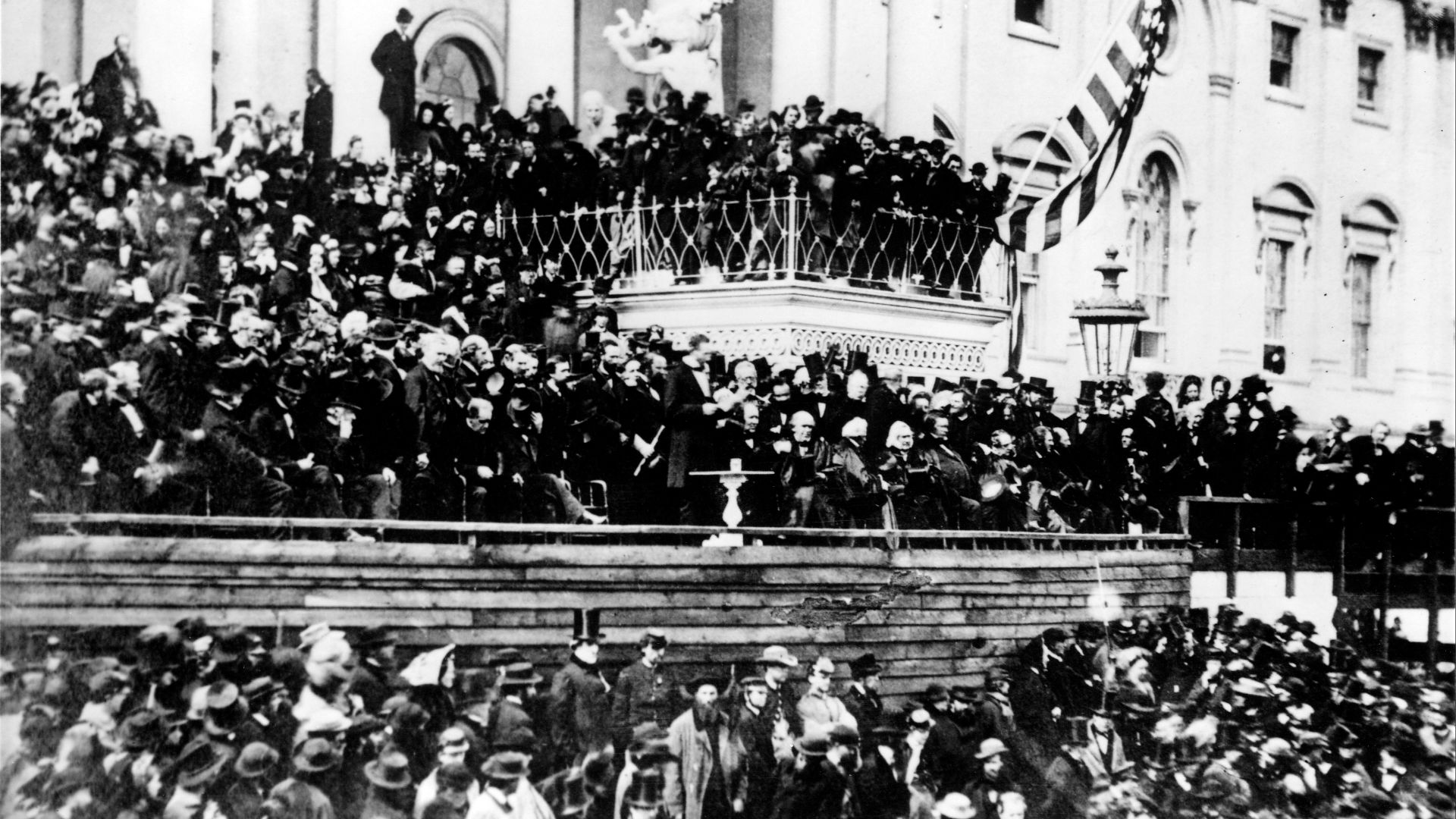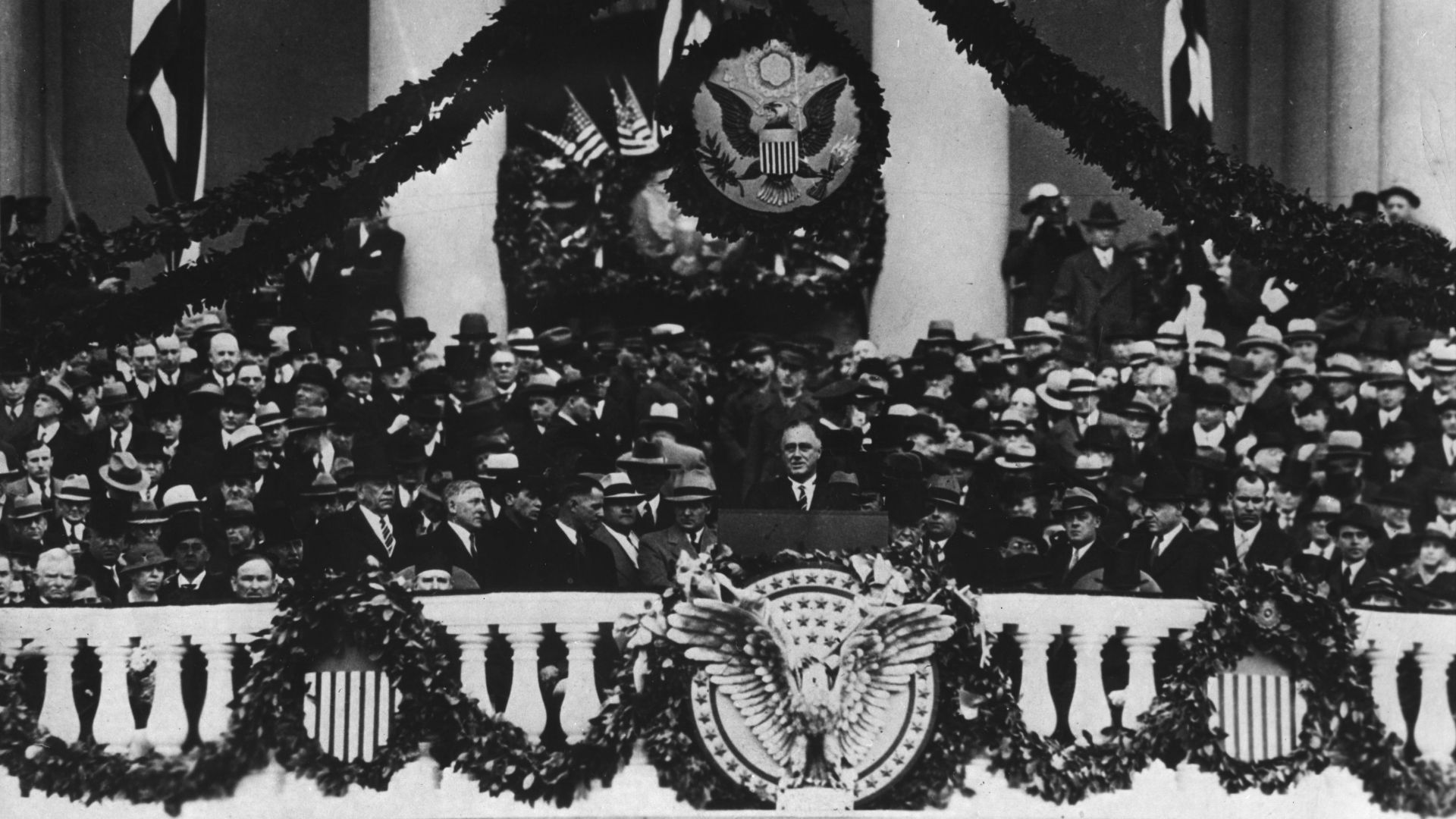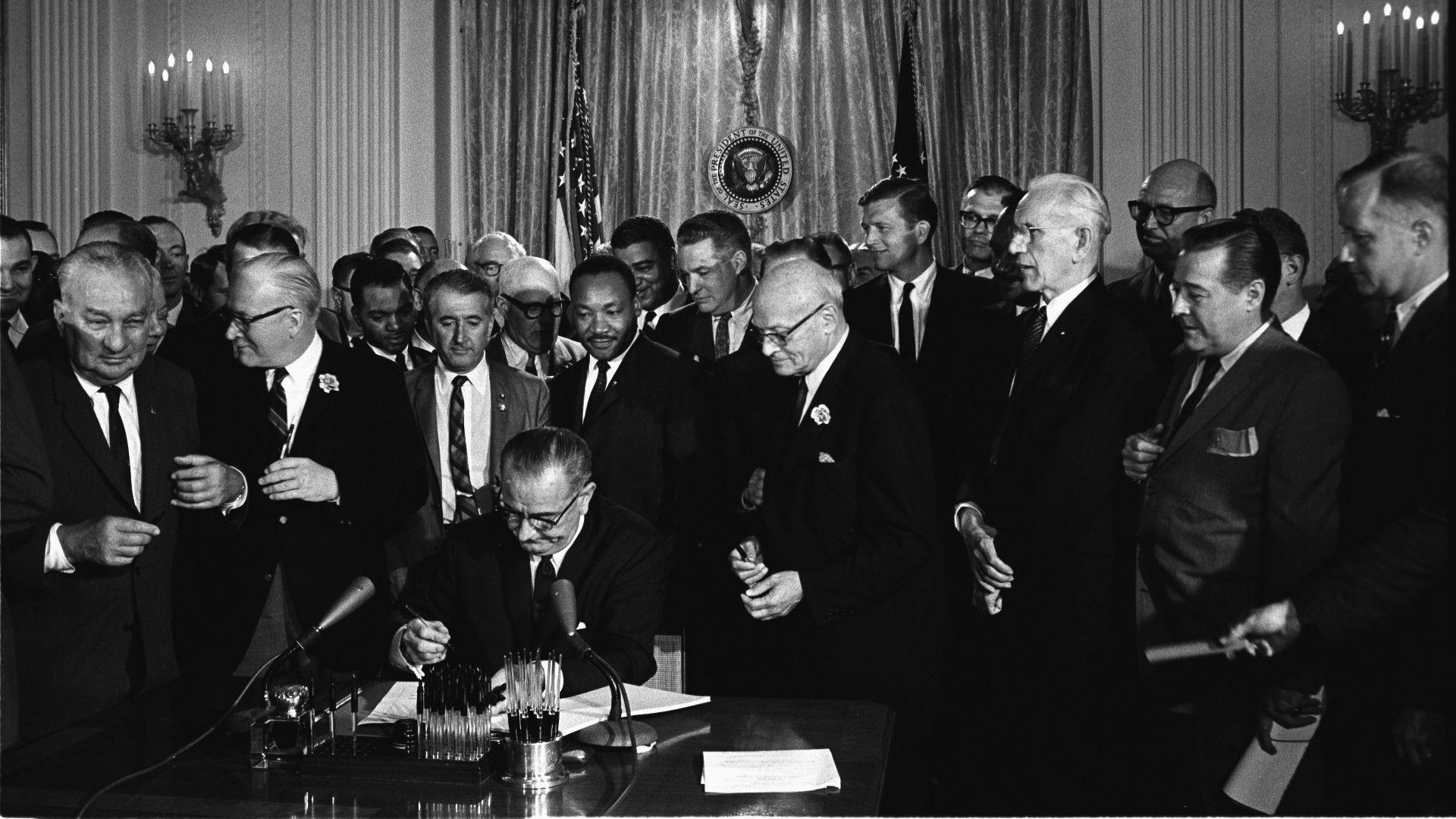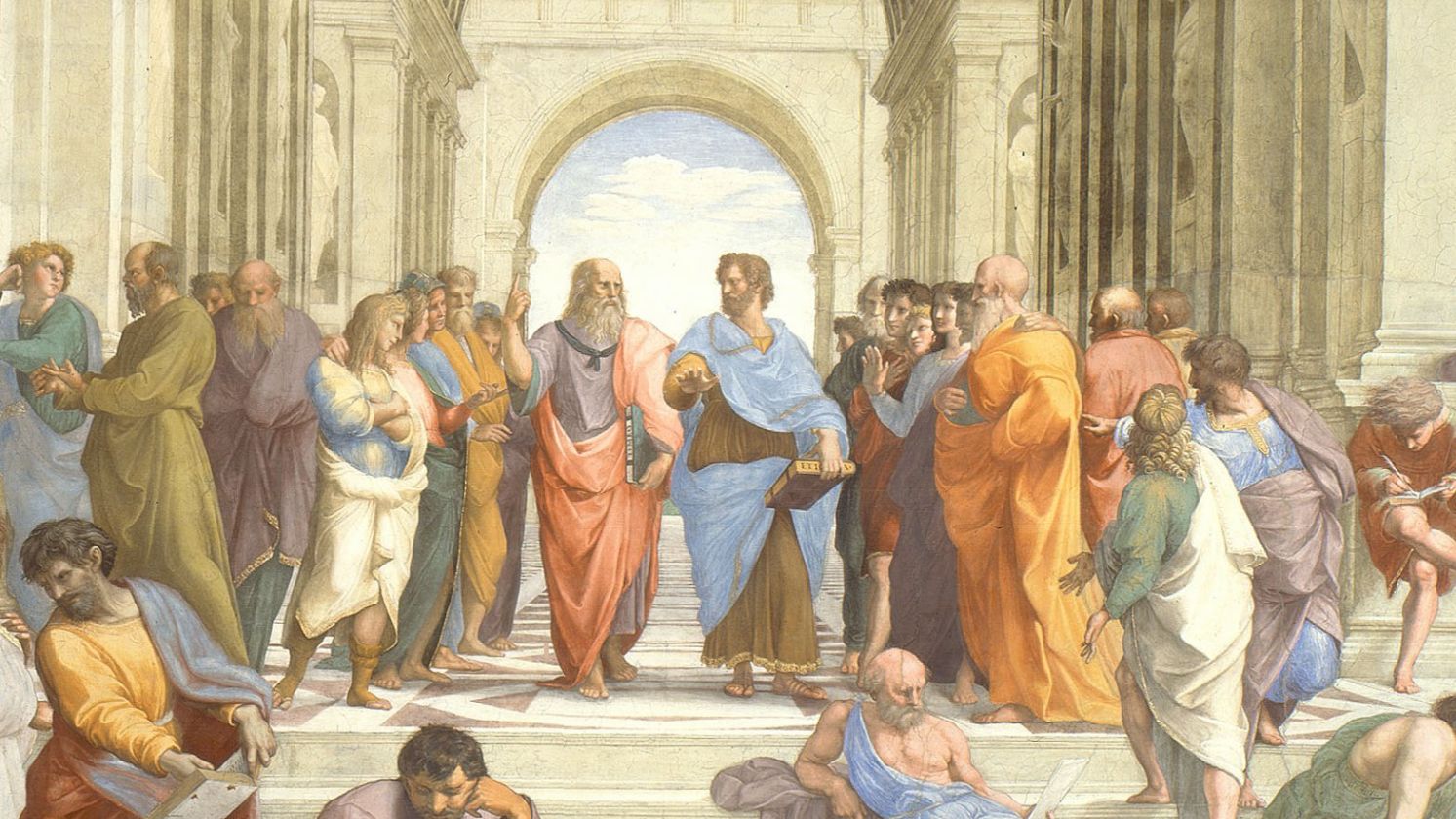How Do You Rally an Entire Country?
American history has been spoken aloud—in courtrooms, on battlefields, and across radio static, presidents have met crisis or change with speeches to steady millions. Some were ironclad. Others were reflective. But all were memorable. Here are 20 presidential speeches that show what it sounds like when a country talks to its people.
 Marc Nozell from Merrimack, New Hampshire, USA on Wikimedia
Marc Nozell from Merrimack, New Hampshire, USA on Wikimedia
1. Washington’s Farewell Address (1796)
Delivered in writing rather than spoken aloud, Washington’s Farewell Address urged Americans to resist permanent foreign alliances and divisive political factions. At the end of two terms, he modeled peaceful power transfer and planted democratic guardrails that echoed across centuries.
 George Washington on Wikimedia
George Washington on Wikimedia
2. Jefferson’s First Inaugural Address (1801)
Following one of the most contentious elections in the U.S., Jefferson struck a tone of reconciliation. “We are all Republicans, we are all Federalists,” he said, calling for national unity. This peaceful shift in party leadership helped legitimize the still-young American democratic experiment amid global doubt.
3. Lincoln’s Gettysburg Address (1863)
At just 272 words, the speech redefined the Civil War’s stakes. Lincoln delivered it on a Pennsylvania battlefield to honor the fallen. But instead of mourning, he reframed the war as a test of the nation’s commitment to equality.
 Fletcher C. Ransom on Wikimedia
Fletcher C. Ransom on Wikimedia
4. Lincoln’s Second Inaugural Address (1865)
The war was nearly over, but Lincoln didn’t celebrate. Instead, he called for “malice toward none” and “charity for all.” Unusual in its humility, the speech reflected on the shared moral burden of slavery to offer a spiritual reckoning rather than a political declaration.
 Alexander Gardner on Wikimedia
Alexander Gardner on Wikimedia
5. Theodore Roosevelt’s “New Nationalism” (1910)
Roosevelt took the stage in Osawatomie, Kansas, to outline a bold, progressive vision. “The welfare of each of us is dependent fundamentally upon the welfare of all of us,” he declared. His speech seeded reforms that would shape 20th-century policy debates.
6. Wilson’s War Message To Congress (1917)
In April 1917, Woodrow Wilson urged Congress to declare war on Germany. His tone was reluctant but resolute. Calling it a war “to make the world safe for democracy,” Wilson justified America’s entry into World War I as a moral duty.
 National Museum of the U.S. Navy on Wikimedia
National Museum of the U.S. Navy on Wikimedia
7. FDR’s First Inaugural Address (1933)
Unemployment was soaring, banks were collapsing, and faith in the government was bottoming out. Roosevelt’s well-known line, “the only thing we have to fear is fear itself,” cut through the panic. He laid out concrete plans for the beginning of the New Deal era.
 FDR Presidential Library & Museum on Wikimedia
FDR Presidential Library & Museum on Wikimedia
8. FDR’s Pearl Harbor Address (1941)
Franklin D. Roosevelt didn’t speak long, just a little over seven minutes. But when he called December 7 “a date which will live in infamy,” the impact was seismic. The speech unified a divided nation and committed the U.S. fully to World War II.
 United States Government. on Wikimedia
United States Government. on Wikimedia
9. Truman’s Announcement on Hiroshima (1945)
On August 6, Harry Truman told the world the U.S. had dropped an atomic bomb on Hiroshima. He framed it as both a military necessity and a technological marvel. Delivered by radio, the speech introduced a level of devastation never seen before.
 VT2008-9-2 President Truman Announces Bombing of Hiroshima by HarrySTrumanLibrary
VT2008-9-2 President Truman Announces Bombing of Hiroshima by HarrySTrumanLibrary
10. Eisenhower’s Military-Industrial Complex Warning (1961)
In his televised farewell address, Dwight D. Eisenhower cautioned the nation about its own defense industry. He coined the term “military-industrial complex” to warn against unchecked arms influence in public policy. It was a rare rebuke of permanent war economies from a sitting commander-in-chief.
11. JFK’s Inaugural Address (1961)
Cold War tensions hovered as Kennedy delivered one of the most quoted lines in American political rhetoric: “Ask not what your country can do for you…” The speech blended poetic economy with global urgency to lay out a foreign policy of responsibility and mutual defense.
 CWO Donald Mingfield, USA on Wikimedia
CWO Donald Mingfield, USA on Wikimedia
12. LBJ’s Great Society Speech (1964)
Speaking at the University of Michigan, Lyndon Johnson shifted the focus from global affairs to domestic needs. He called for an “end to poverty and racial injustice,” launching initiatives in healthcare and civil rights. The Great Society agenda reshaped American life in ways that proved more enduring than many wars.
 Cecil Stoughton, White House Press Office (WHPO) on Wikimedia
Cecil Stoughton, White House Press Office (WHPO) on Wikimedia
13. Nixon’s Resignation Speech (1974)
Richard Nixon informed the nation from the Oval Office on August 8. He didn’t apologize for Watergate but acknowledged the political damage and loss of congressional support. In a restrained tone, he became the only U.S. president to resign while still in office.
14. Carter’s Crisis of Confidence (1979)
Often mischaracterized as the “Malaise Speech,” Jimmy Carter’s televised address tackled a growing spiritual disconnection in the country. He warned that economic struggles reflected a loss of faith in institutions. The speech was introspective, even prophetic, but politically, it landed with mixed results.
 Department of Defense. Department of the Navy. Naval Photographic Center on Wikimedia
Department of Defense. Department of the Navy. Naval Photographic Center on Wikimedia
15. Reagan’s Challenger Disaster Address (1986)
When the Challenger space shuttle exploded, Ronald Reagan postponed the State of the Union with a compassionate message. He addressed schoolchildren directly, honored the fallen crew, and closed with a line from a poem: “They slipped the surly bonds of earth…” All citizens mourned together.
16. Reagan’s Berlin Wall Speech (1987)
Reagan spoke to both audiences of East and West. His plea, “Mr. Gorbachev, tear down this wall,” was initially downplayed by advisers but later became iconic. That line symbolized a larger shift toward the end of the Cold War and Eastern Bloc resistance.
17. George H.W. Bush on the Gulf War (1991)
During Operation Desert Storm, Bush’s speech to the nation emphasized swift and limited military action to expel Iraqi forces from Kuwait. He cited a “new world order” built on collective security, and the televised address reflected his caution and military decisiveness.
 Credit: George H.W. Bush Presidential Library and Museum on Wikimedia
Credit: George H.W. Bush Presidential Library and Museum on Wikimedia
18. Clinton’s Oklahoma City Address (1995)
Three days after a domestic incident took 168 lives, Bill Clinton stood before the grieving city and the nation. His words balanced grief and strength, condemning hatred while urging national unity. It became a model for empathetic leadership during a crisis.
 President Clinton on the Oklahoma City Bombing - April 19, 1995 by American History TV C-SPAN
President Clinton on the Oklahoma City Bombing - April 19, 1995 by American History TV C-SPAN
19. George W. Bush After 9/11 (2001)
Standing atop rubble with a firefighter, Bush used a bullhorn to speak to rescuers. “I can hear you!” he shouted. “And the people who knocked these buildings down will hear all of us soon.” It was improvised and galvanized American resolve in an uncertain hour.
 The U.S. National Archives on Wikimedia
The U.S. National Archives on Wikimedia
20. Obama’s Selma Anniversary Speech (2015)
Standing on the Edmund Pettus Bridge, President Obama honored the 50th anniversary of the Selma marches. His speech praised civil rights pioneers and tied their struggle to the broader American story. It reasserted the idea that citizenship requires ongoing participation in democracy.
KEEP ON READING

20 Of History's Greatest Forgotten Empires
Rome Wasn't The Only One That Fell. In the annals…
By Emilie Richardson-Dupuis Jul 31, 2025
The 20 Most Famous Roman Gods & Goddesses
By Jove, That's A Lot Of Gods!. How many Roman…
By Ashley Bast Jul 30, 2025
20 Greatest "I'll Do It Myself" Moments in History
When There’s a Will, There’s a Way. With all the…
By Farva Ivkovic Jul 29, 2025
20 Times The British Monarch Was Embroiled In Scandal
No Amount Of Money & Influence Could Cover These Up.…
By Emilie Richardson-Dupuis Jul 29, 2025
A Brilliant Mind: 20 Facts About Aristotle, History's Greatest Thinker
The Man Behind The Mind. Known as one of the…
By Ashley Bast Jul 28, 2025
20 Historical Figures Who Loved Cats
Great Minds And Furry Friends. Greatness has a curious way…
By Noone Jul 28, 2025







